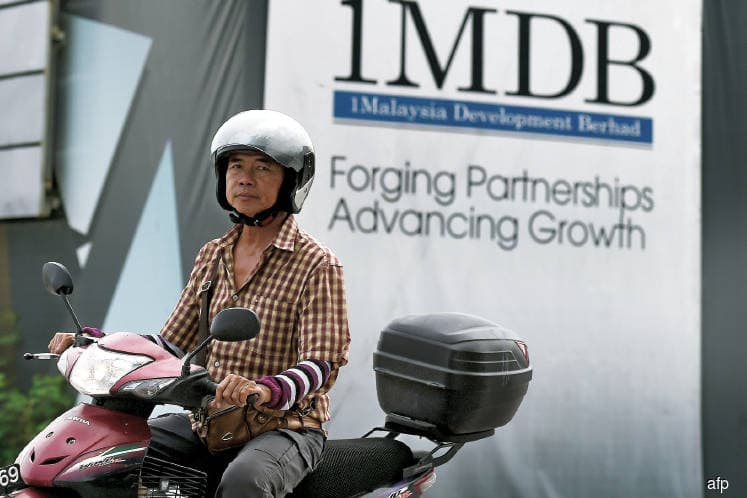
This article first appeared in The Edge Malaysia Weekly on May 21, 2018 - May 27, 2018
1MALAYSIA Development Bhd’s board met 80 times and approved 425 written resolutions in six years, from 2009 to 2015. The number of board meetings was considerably higher than most business entities but, unfortunately, that many board meetings was not enough to uphold corporate governance.
According to the Auditor-General’s Report on the strategic development fund, corporate governance at 1MDB, which started as the Terengganu Investment Authority (TIA), was unsatisfactory. It failed to comply with proper procedures on decision-making.
Transactions were done and decisions made by the management and board of directors that were not aligned with the best practices of corporate governance based on the guidelines issued by the Putrajaya Committee on GLC High Performance through the Green Book — Enhancing Board Effectiveness and Blue Book — Intensifying Performance Management Practice.
“The Green Book suggests that the board should meet ... six to eight times a year based on the business requirements of a company. However, 1MDB’s board met more [often] than the average frequency recommended,” the AG’s report says.
It points out that most key decisions, such as making new investments, terminating existing investments and/or extending investments involving amounts between US$1 billion and US$2.22 billion, were approved by a written resolution by the board.
“This shows that a constructive discussion between the board and a detailed assessment [of] an investment is not implemented before an important decision is made, although 1MDB’s management had informed the Public Accounts Committee on Jan 19, 2016, that the board had discussions before the resolutions on the investments were passed.
“To some extent, investment considerations were made on several high-value and high-risk projects without detailed discussion or evaluations by the board,” says the report.
The absence of an investment committee contributed to investment decisions being made without going through a systematic, proper due diligence process.
Weaknesses in governance included the fund’s first joint venture projects with PetroSaudi Holdings (Cayman) Ltd. The JV company, 1MDB PetroSaudi Ltd, was formed on Sept 28, 2009, and 1MDB invested US$1 billion for a 40% stake.
“Investment decisions in the JV company were made within eight days and the amount invested was made without a due diligence process. There were four different companies registered under the name of PetroSaudi but [in] the proposed investment paper submitted to the board of directors, 1MDB (management) did not state that fact,” the report says.
Information on background reviews of partners, total project costs and the investment timeframe was not furnished to the board when investment decisions were made.
For example, the conversion of murabahah notes to equity investments in PetroSaudi Oil Services Ltd (PSOSL) was done without a detailed study to identify the company’s liabilities, its ability to generate income and its past financial performance.
Despite knowing that PSOSL operated in Venezuelan waters — where sanctions had been imposed by the US and drilling contracts were coming to an end — 1MDB proceeded with the investment.
Another case is its subsidiary — Segregated Portfolio Co (SPC). Through its subsidiary, Brazen Sky Ltd, 1MDB signed an investment management agreement with Bridge Global Absolute Return Fund SPC (Bridge Global SPC) and Bridge Partners Investment Management (Cayman) Ltd to invest US$2.32 billion.
“This investment was made through Bridge Global SPC, a newly established one-month-old company with no fund management licence or experience in managing large funds,” the AG’s report says.
At SRC International Sdn Bhd, a unit of 1MDB, the board of directors approved a US$45.5 million investment in Aabar-SRC Strategic Resources Ltd, which would invest in Gobi Coal & Energy Ltd — a coking coal producer in Mongolia — without a feasibility study.
The AG’s report highlights that there were occasions when 1MDB’s management provided incomplete or inaccurate information to the board, and that several decisions were made without the board’s approval. “The fund’s management also did not fully comply with the board/shareholders’ decisions in several investment-related incidents,” the report says.
Record keeping and filing was not systematic and was unsatisfactory. “1MDB failed to keep company records properly, completely and systematically. The decision-making on investments in a short period without detailed assessment indicates that the board and the fund’s management [had] compromised [on the] check and balance elements, which are fundamental controls to protect the interests of a company,” the report adds.
Save by subscribing to us for your print and/or digital copy.
P/S: The Edge is also available on Apple's AppStore and Androids' Google Play.